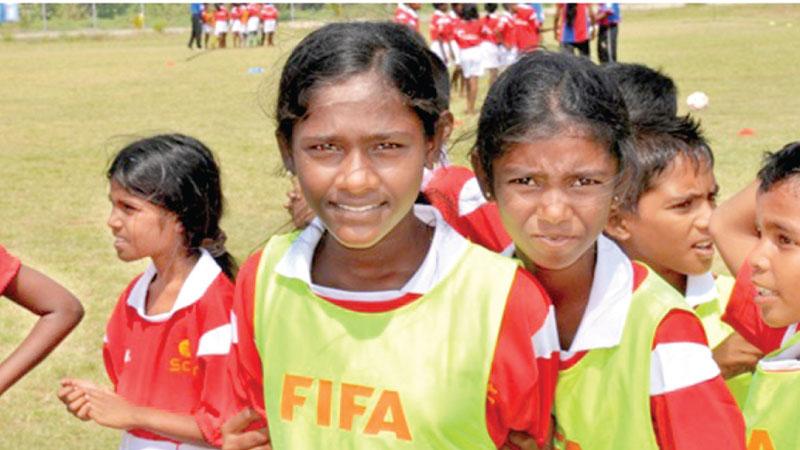
With football quite appropriately being the first sport to come out of the crippling coronavirus in Sri Lanka amid many concerns, ideas, criticisms popping up from time to time, questions are also being raised on the future of the world’s most favourite sport in the island.
Presently there appears to be no concrete solutions provided by anyone running football that has made the task of transforming an organization like the Football Federation of Sri Lanka (FFSL) from nowhere to somewhere.
The composition of the FFSL’s governing body comprise people with mixed agendas and varied mindsets and changing the mindset of the people in the governing body to agree on one point is the most challenging task for anyone for the game and towards its betterment.
The Sunday Observer confronted many experienced sports administrators and former National players to address the burning issue.
Traditional football is the formal activity of the FFSL for decades under many administrators. Competitions, Youth Football, Women’s Football (from time to time) and recently education of coaches. The National team was re-activated three years ago, but it was not adequately structured to where it should belong.
According to one expert, football is far beyond just a game. It is an industry.
“If we don’t think out of the box and build this as a business model, we cannot move forward on par with the world. Strategies need to be initiated based on our strengths, and there should be a pathway to acquire new skills and talents in keeping with global standards. Keeping on repeating the same old-fashioned activities will not take us anywhere beyond this level,” he warned.
Current coaches are mostly former players, who know the ups and downs of football. Coaches play a major role in reshaping football from grassroots level. This includes developing player skills and teaching them with interpersonal skills for their lifestyle through football. More often, young kids imitate their coaches and their behaviour. In this aspect, coaches have high influence among the players and teams.
Sri Lanka has not produced many qualified coaches for the past several decades and currently, the top club teams are ready to play in the professional league. The Super League is struggling to enlist good coaches for their teams. If the past administrator had performed their task in a planned manner, this could have been prevented. The demand for good coaches is growing and the supply is inadequate.
Many coaches showed their displeasure of how the affairs were planned and managed in relation to producing coaches. The FFSL has not produced any Pro- Licensed Coaches up to date and there are few ‘A’ licensed coaches - less than 30 – with many of them retired or with outdated methods.
Former National players charge that the FFSL had failed to show them a pathway after their retirement and question what action have they taken to continuously update the licensed coaches each year. Once a coach obtains a certificate, he never has a chance to update his skills under FFSL.
It is up to the individual to learn on his own through the internet or other source. What he learns on his own may be correct or incorrect as there is no one to supervise or mentor them.
In many instances, retired players take up coaching without even a coaching certificate.
Sri Lanka holds the unique record of having more unqualified coaches than licensed coaches.
It is estimated that around 3000 unqualified coaches are teaching clubs, schools and academies while the FFSL has only about 450 AFC licensed coaches.
There is no mechanism in football administration for these coaches to get a coaching license after receiving proper training. One senior former national player blamed past administrators for not looking ahead and planning for this demand for the last 15 years.
Former National players, clubs, referees and other administrators agree that Sri Lanka needs a complete overhaul.
Many stakeholders point fingers at the administration for keeping old guards and friends in the governing system which creates an unprofessional environment for the administration.
The next election is due in eight months and there are a couple of names popping up in football circles as to who is the most suitable candidate to take over the leadership in football.
Voters and stakeholders are now faced with the challenge of picking a leader who has a visionary plan for football and who knows the pulse of footballers. Not someone based on wealth, political influence or other benefits.
